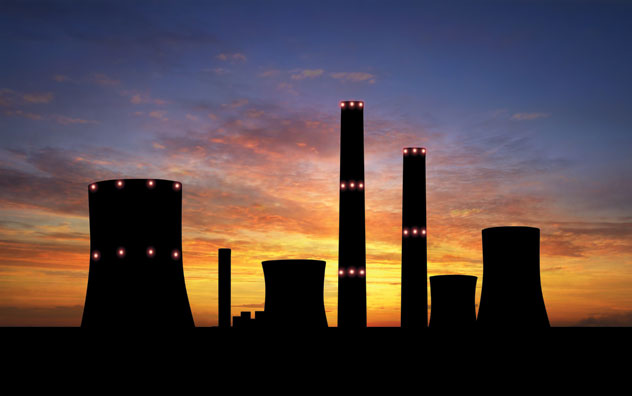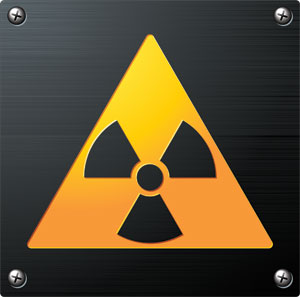SUBCONTINENT
Nuclear Fuel: Australia Opens Uranium Trade
Australia’s ruling Labor Party has voted to reverse a decades-old ban on uranium sale to India, enabling the two countries to trade in the crucial nuclear fuel, writes Siddharth Srivastava.

Australia’s ruling Labor Party has voted to reverse a decades-old ban on uranium sale to India, enabling the two countries to trade in the crucial nuclear fuel.
Backing the move Australian Prime Minister Julia Gillard said “it was not rational to sell uranium to China but not India, the world’s largest democracy.”
In a statement India’s foreign minister S.M. Krishna welcomed the move. Canberra has so far refused to supply uranium to India as it is a non-signatory to the Nuclear Non-Proliferation Treaty (NPT), despite the prospects of losing out a huge multi-billion-dollar market.
Australia, the world’s third largest uranium producer, sells the atomic fuel to China, Japan, Taiwan and America.
However, it has been sometime that New Delhi has been pushing Australia to remove the uranium sale moratorium given India’s record as a responsible nation despite being outside the NPT.
India strongly believes that the NPT is skewed in favor of nations that already possess nuclear weapons.
Explaining his country’s changed stand, Australia’s defense minister Stephen Smith, on a visit to India last week, highlighted India’s civil nuclear agreement with America in 2005 that has been approved by the International Atomic Energy Agency.
“That effectively gives you the same protections that you get if a country signs the NPT which, of course, has been the stumbling block for many years as far as India is concerned,” said Smith. A framework for uranium supplies from Australia will now be worked out over the next year.
Given its big electricity needs, India has plans to raise nuclear power from current 3% total power generated to 25% by 2050. By 2032 India’s nuclear power capacity has been targeted at 63,000 MW from current 4,500 MW.
India has found support for its atomic plans internationally, with America, France, Russia, in particular looking to tap the big business opportunity.
India has, meanwhile, also signed civil nuclear deals with Namibia, Mongolia, Canada, Angola, Kazakhstan, South Korea and the European Atomic Energy Community.
 Japan is the only country that has refused to sign a civil atomic deal with India, for reasons similar to Australia. It is the only country against who an atom bomb has been used. It has thus been reluctant about dealing with non-NPT signatory India on nuclear matters. Japan is the only country that has refused to sign a civil atomic deal with India, for reasons similar to Australia. It is the only country against who an atom bomb has been used. It has thus been reluctant about dealing with non-NPT signatory India on nuclear matters.
Yet, there were signs earlier this year that Tokyo would agree to trade in nuclear reactors with India. However, progress has slowed following the earthquake and tsunami that hit Japan, raising questions about safety of nuclear plants.
The two countries, meanwhile, continue to interact on the matter. Most observers believe that an atomic deal with checks and safeguards will be signed between India and Japan. It is a matter of time.
However, India’s political leadership also needs to convince its own people about the efficacy of atomic power as a clean and safe source of power, especially in the wake of Japan’s Fukushima crisis.
This is proving to be difficult. Although Prime Minister Manmohan Singh, the main architect of India’s nuclear energy push, has repeatedly assured over the last few months that all safety measures will be implemented, many are not buying his arguments.
After the Fukushima crisis, locals at Jaitapur (Maharashtra) and states such as Tamil Nadu and Haryana with major atomic installations in the pipeline are vehemently opposing Nuclear Power Plants (NPPs).
Meanwhile, the state government of West Bengal has refused permission to a proposed 6,000 MW facility near the town of Haripur that intended to host six Russian reactors.
The concerns are about safety, adequate long-term compensation for land acquisition and ensuring re-habilitation.
Further complicating matters, a Public Interest Litigation (PIL) has been filed against the government’s civil nuclear program at the apex Supreme Court. The PIL specifically asks for the “staying of all proposed nuclear power plants till satisfactory safety measures and cost-benefit analyses are completed by independent agencies.”
Concerned about the mounting protests in India on the issue of safety of NPPs, last month France assured the most stringent standards at Jaitapur, where a 9,900 MW French-backed mega atomic park is planned.
In a high level interaction between the two countries that focused on the nuclear issue, among others, French minister of foreign affairs Alain Juppe assured his Indian counterpart S.M. Krishna about safety of NPPs.
Presently, French major Areva is in the initial process of building the first two 1,650 MW reactors in Jaitapur.
“India and France share the view that nuclear energy is a vital source of power provided we develop the highest levels of safety rules,” Juppe said, adding, “we are working on this issue at the international level with International Atomic Energy Agency (IAEA) and at national level.”
Post Fukushima, France has launched a process of stress tests on all its nuclear installations and awaits a new official blueprint on nuclear safety.
New Delhi, meanwhile, has been holding steadfast about its atomic energy plans. Reiterating backing for Jaitapur NPP, Krishna said, “We are awaiting the completion of the French Review of Safety Aspects of European Pressurized Reactor (EPR) Design. Both sides are committed to ensuring the highest levels of safety in the project.”
The debate about nuclear energy is not conclusive yet.
|